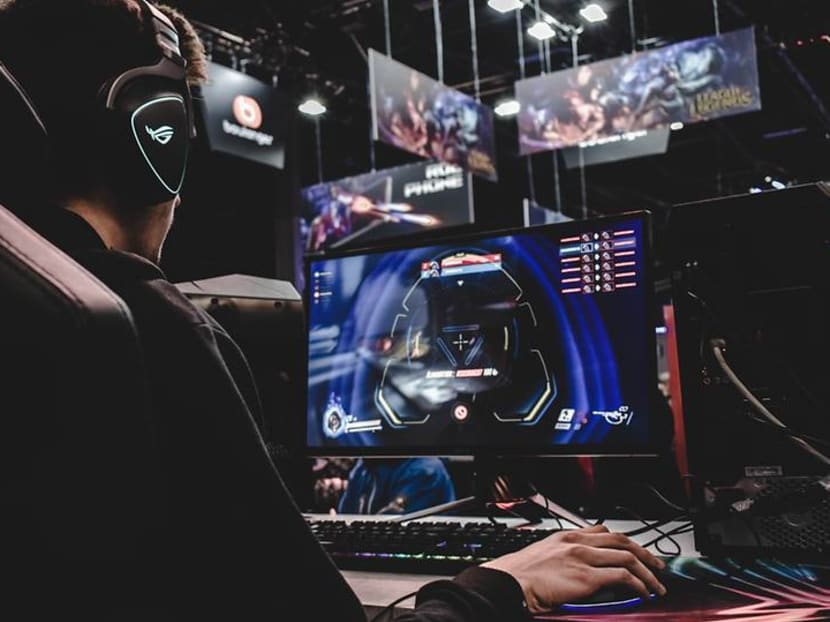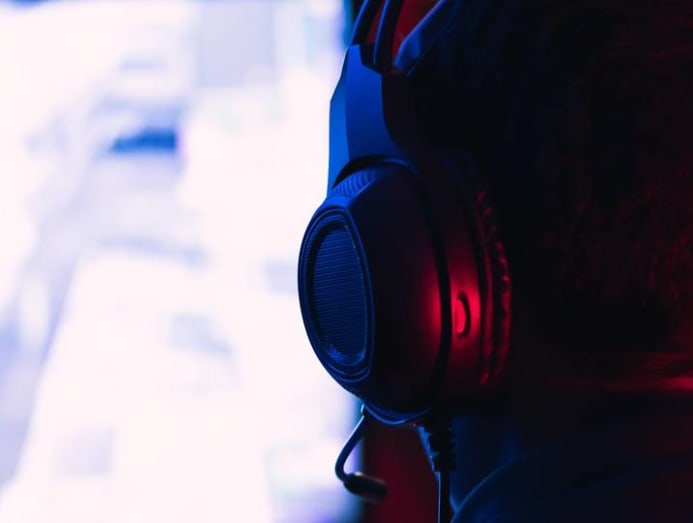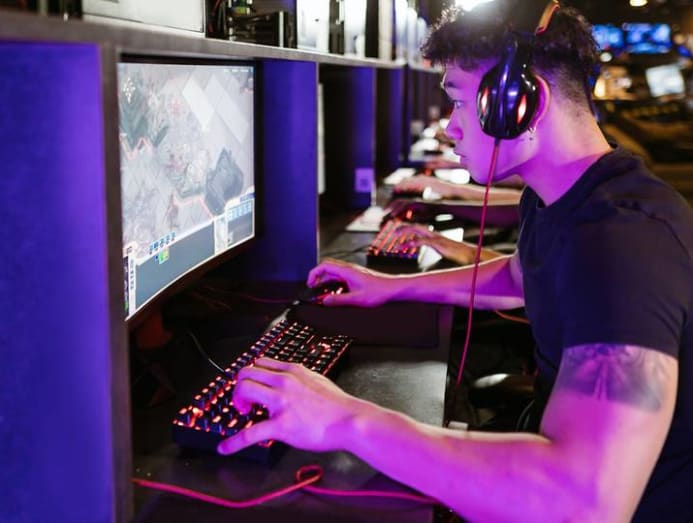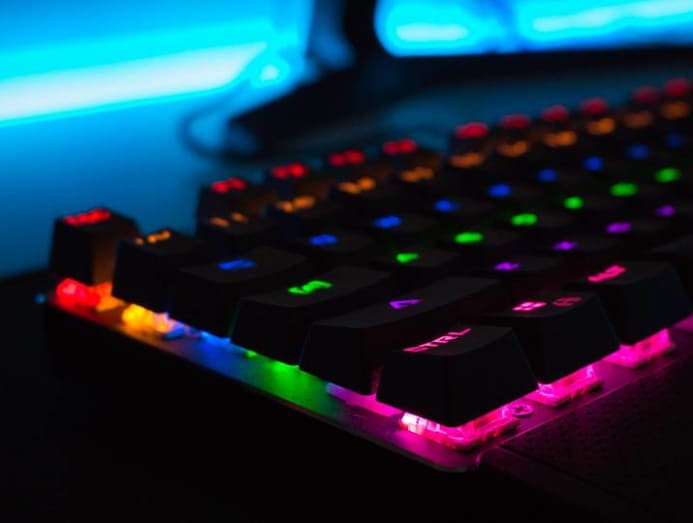Why South Korean gamers are 'deadly serious' about e-sports
Each year, thousands of young South Koreans compete to join pro e-sports teams, but only a few make the cut. An American company in Seoul wants to help more young gamers find jobs.

(Photo: Unsplash/Florian Olivo)
The students ate lunch in silence before gathering in a dimly lit room packed with high-powered computers. There, coaches helped them learn to outmaneuver opponents in a digital fantasy world fraught with ambushes and monsters.
School was over by 5pm, but individual practice continued well into the night – all in a hard day’s work for the students at one of South Korea’s many e-sports academies.
“I sleep only three or four hours a day,” said Kim Min-soo, 17, a student who wore a brace around his right hand to lessen the pain from so much gaming. “But I want to become a star. I dream of an e-sports arena packed with fans all rooting for me.”
Students such as Min-soo have brought the same intense competitive energy often associated with South Korean education to their training at e-sports academies.

South Korea is considered a birthplace of e-sports, but the highly selective multibillion-dollar industry is still frowned upon by many in the country. The academies have worked to change that image and give thousands of young people a chance to pursue careers in a place where gaming has long been seen as a way of life.
“In South Korea, players must do homework on their game before playing it, because if they disrupt the efficiency of their team, they can be expelled,” said Jeon Dong-jin, Korea head of the American video game developer Blizzard Entertainment, during a recent forum in Seoul. “South Korean gamers are deadly serious.”
E-sports is now the fifth-most popular future job among South Korean students, after athletes, doctors, teachers and digital content creators, according to a survey by the Education Ministry last year. It will be a part of the Asian Games in 2022.
In South Korea, players must do homework on their game before playing it, because if they disrupt the efficiency of their team, they can be expelled.
Top players such as Lee Sang-hyeok, who goes by the gaming name Faker, earn as much fame and fortune as K-pop idols. Millions watch them play over livestream. Before the pandemic, fans packed into e-sports arenas that looked like a cross between a rock concert and pro-wrestling stadium.
The allure can be hard to resist. Parents have dragged children to counselling for gaming addiction or to rehabilitation boot camps. When conscientious objectors ask to be exempted from South Korea’s mandatory military service, officials will investigate whether they play online games involving guns and violence.
Grades fall. Sometimes, students drop out of school to spend more time gaming. Yet, precious few will get the chance to make it big.
The 10 franchised professional e-sports teams in South Korea competing in League of Legends, the most popular game here, hire only 200 players total. Those who do not make the cut have few alternatives.

Lacking good grades – and often high school diplomas – gamers will find themselves with limited job prospects. And unlike some American universities, South Korean schools do not offer admission based on e-sports skills.
When Gen.G, a California-based e-sports company, opened its Gen.G Elite Esports Academy in Seoul in 2019, it wanted to address some of those challenges because “this is where most of the talent is”, said Joseph Baek, programme director at the Gen.G academy. “South Korea is still considered the mecca of e-sports.”
The school trains young South Koreans and other students on how to turn pro and helps gaming buffs find opportunities as streamers, marketers and data analysts. Together with educational company Elite Open School, it opened an English-only programme that offers students a chance to earn an American high school diploma so they can apply to universities in the United States on e-sports scholarships.
Anthony Bazire, a 22-year-old former Gen.G academy student from France, said he had chosen South Korea as his training ground because he knew the country had some of the best players. Today, top prize winners in League of Legends, Overwatch and StarCraft II are mostly South Koreans.
“When you see people working hard, it pushes you to work hard,” he said.
The Gen.G programme, the first of its kind in South Korea, has even helped some students convince their parents that they made a smart career move.
In 2019, his second year in high school, Kim Hyeon-yeong played League of Legends for 10 hours a day. His skills improved as he romped his way through the digital fantasy world. That summer, he decided to become a pro e-sports player and quit school.
“My parents were totally against it,” said Kim, 19. “I told them that I would have no regrets, because this was the one thing I wanted to try in my life, throwing in everything I got.”
His mother, Lee Ji-eun, 46, was so distressed that she lay in bed moaning. She eventually decided to support her son after he asked her one day: “Mum, what dream did you have when you were my age? Have you lived that dream?”
Kim researched the Gen.G programme, which costs US$25,000 (S$33,650) a year, and led his mother to the academy to convince her that he could find success as an e-sports professional. He cleared a big hurdle to his dream this year by winning admission, based on his online game skills, into the University of Kentucky.

Min-soo, the student who dreams of becoming an e-sports star, first felt the electrifying vibe of an e-sports arena when he was in middle school. Since 2019, he has woken up at 6am every day, taking a two-hour trip via bus and subway to the Gen.G academy. He returns home at 11.30pm and then practises more, seldom going to bed before 3am.
This year, he was finally considered good enough to start taking tests to become a trainee on a pro team.
“It’s a hard and lonely life, because you have to give up everything else, like friends,” he said. “But I am happiest because I am doing what I enjoy the most.”
By Choe Sang-Hun © The New York Times
This article originally appeared in The New York Times.
https://www.nytimes.com/2021/06/19/world/asia/south-korea-esports.html



